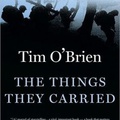Hanif Kureishi: Intimacy

There are a couple of books which get better and better with each re-reading. Mrs Dalloway by Virginia Woolf, The Passion by Jeanette Winterson, or The Great Gatsby by F. Scott Fitzgerald are such books for me. And Hanif Kureishi’s Intimacy is also such a book. This was the third time I read it, and it’s slowly becoming one of those books I must re-read every two or three years.
The narrator of Intimacy is Jay, a man in his forties, and the book tells the story of a single night, „the saddest of nights”. The night is sad because Jay is planning to leave his long-term partner, Susan and their two children on the following morning. Jay uses the eve of his take-off to glance back at the years he has spent with Susan and to think about his feelings, motivations, desires, fear and frustration – and this way make sure that he really has to go.
One of the good things in Intimacy is that it’s a novel – and I don’t really care if it features many autobiographical elements. Since Intimacy is a novel, I don’t have to care about „real” questions: I don’t have to censure Jay for the ugly deed he is about to perform, and I don’t have to wonder how his decision will affect Susan’s and the children’s life – not to mention his own.
Sure, Jay is a rather disagreeable, immoral, selfish, pathetic and cowardly man – but I can perfectly understand his feelings, his arguments, his selfishness, his itchiness and his great desire for the new and the exciting – and in the case of a novel, this is what counts for me, because I can moralize about questions of e.g. children growing up in broken homes enough in reality.
Intimacy is an embarrassing, sometimes uncomfortably honest novel – something like Lionel Shriver’s We Need to Talk About Kevin. This novel can encourage the reader to openly acknowledge thoughts and fears he usually only thinks about when he’s all alone, lying awake in the middle of the night, but would never tell anyone. Of course I won’t air any such thoughts here, but let me mention an example from the book which sheds some light on what I’m thinking of.
We learn from Jay’s reminiscences that at one point in their relationship, he and Susan attended couple counseling sessions. During one of the sessions, Jay mentions that Susan no longer kindles any interest in him. Then the counselor tells him it’s perfectly natural that the original fire disappears from a long-term relationship after a while, but there are good consolations for the loss of enthusiasm, for instance, contentment. Jay is absolutely flabbergasted by this reasoning – and to be honest, I’m not at all surprised to learn that someone doesn’t look for consolations in a relationship and that someone may think that contentment is not the best feeling a relationship can offer – but of course thoughts like this are not easy to admit.
And of course you don’t have to be an unfaithful forty-something man in order to understand Jay’s feelings, because everyone who ever left someone went through a very similar phase. Therefore even though Intimacy shows everything from a male perspective and the arguments in the book follow a kind of „male logic”, this is not a „men’s novel”. This is a human novel. And it’s good one.
The narrator of Intimacy is Jay, a man in his forties, and the book tells the story of a single night, „the saddest of nights”. The night is sad because Jay is planning to leave his long-term partner, Susan and their two children on the following morning. Jay uses the eve of his take-off to glance back at the years he has spent with Susan and to think about his feelings, motivations, desires, fear and frustration – and this way make sure that he really has to go.
One of the good things in Intimacy is that it’s a novel – and I don’t really care if it features many autobiographical elements. Since Intimacy is a novel, I don’t have to care about „real” questions: I don’t have to censure Jay for the ugly deed he is about to perform, and I don’t have to wonder how his decision will affect Susan’s and the children’s life – not to mention his own.
Sure, Jay is a rather disagreeable, immoral, selfish, pathetic and cowardly man – but I can perfectly understand his feelings, his arguments, his selfishness, his itchiness and his great desire for the new and the exciting – and in the case of a novel, this is what counts for me, because I can moralize about questions of e.g. children growing up in broken homes enough in reality.
Intimacy is an embarrassing, sometimes uncomfortably honest novel – something like Lionel Shriver’s We Need to Talk About Kevin. This novel can encourage the reader to openly acknowledge thoughts and fears he usually only thinks about when he’s all alone, lying awake in the middle of the night, but would never tell anyone. Of course I won’t air any such thoughts here, but let me mention an example from the book which sheds some light on what I’m thinking of.
We learn from Jay’s reminiscences that at one point in their relationship, he and Susan attended couple counseling sessions. During one of the sessions, Jay mentions that Susan no longer kindles any interest in him. Then the counselor tells him it’s perfectly natural that the original fire disappears from a long-term relationship after a while, but there are good consolations for the loss of enthusiasm, for instance, contentment. Jay is absolutely flabbergasted by this reasoning – and to be honest, I’m not at all surprised to learn that someone doesn’t look for consolations in a relationship and that someone may think that contentment is not the best feeling a relationship can offer – but of course thoughts like this are not easy to admit.
And of course you don’t have to be an unfaithful forty-something man in order to understand Jay’s feelings, because everyone who ever left someone went through a very similar phase. Therefore even though Intimacy shows everything from a male perspective and the arguments in the book follow a kind of „male logic”, this is not a „men’s novel”. This is a human novel. And it’s good one.





